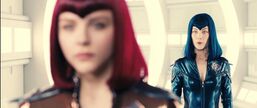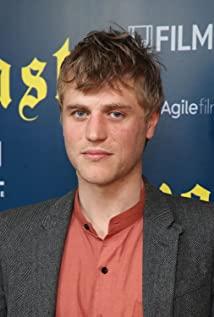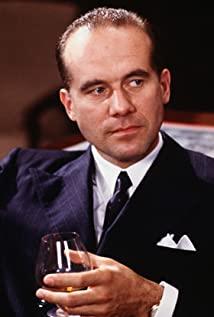Peter Cat / text
as the vast majority of scratching to "intellectual" itch art pieces, like Assayas new film in Cannes this year is a reflexive film about art - the most obvious What's more, it is firstly a play in a play, a movie about the boundary between drama (fiction) and "reality". And the "reality" in the movie is further extended by the actor's identity in the real world, and finally constitutes a triple mirrored meaning network. But "Sirs Maria" does not stop there. The snake of desire that the director really tries to grasp in the whole film is nothing but the flow of more than time, more precisely, the face The women themselves who are getting better with the years.
The protagonist of the film is the international superstar Maria (Maria, played by Juliet Binoche) who is over forty years old and is at the peak of her career. Twenty years later, she once again participated in her famous work "Maloja Snake" (Maloja Snake). Only this time, she will no longer play the "young" and charming female subordinate Sigrid (Sigrid), but the "middle-aged" female boss who plays the opposite role-the obsessed girl. The subordinate and the middle-aged female Helena who was eventually forced into desperation. However, the mutual placement of roles on the stage actually caused a spiritual crisis in real life. It is precisely through this that Assayas focused the lens on Maria herself, who is deeply trapped in trivial life, an international film star facing transformation due to her age, and at the same time a portrait of a woman who has lost herself in time.
It is also a female star who is trapped in middle age, it is also a play in a play, and it is also the moment that is trapped by the past. The setting of "Sirs Maria" has to be reminiscent of Kasawitz's masterpiece "opening night" in 1977. If we say that the drama of "Night of the First Performance" is highly psychoanalytic, and therefore visually presented as hidden behind every female "self" split, that concrete and ghostly haunting Roland Here’s the "second woman" in the spiritual world; then, in "Sirs Maria", the image of this "second woman" has undergone a certain French transformation, under a realist tradition. The disenchantment. Because, in Assayas’s writings, instead of letting Binoche be trapped in a closed self-world and encounter a kind of self-fantasy, it is better to let the “other” in the real world fill this self-opposite. , And to expand the social dimension of the film. For this reason, what we see in Sils Maria is not a one-man show by Binoche, but a story of three women.
And the two popular actresses of the new generation of Hollywood-Christine Stuart and Chloe Moretz, became the "second woman" in the film: Binoche's past-she The missing thing is also the source of her desire. Among them, the former faded away from the halo and scandal caused by "Twilight" and played Maria’s personal assistant Valentine in the film; while the latter was taken from the real world, "King of the Sea" "The super killer" who conquered the otaku around the world turned into the movie's popular Hollywood youth idol Jo-Anna (Jo-Anna Ellis), and she is the actor of the new version of Sigrid.
Just because the above series of role identities are highly consistent with real identities, indicating the introduction of overlapping actors, it is not difficult for readers to find that Assayas has laid out a complex metaphorical network at the beginning of this drama; and drama; The blurry boundaries between reality and reality, between reality and reality, have been wiped out by the director as the plot progresses.
The film begins with a train traveling between the Alps. In a series of shaking hand-held shots, Stuart has a pair of black-framed glasses and a Converse appearance. He often explodes due to poor cell phone signals in the train. Difficult to keep in touch with the outside world. It makes people feel that if it were not for a commercial blockbuster based on a best-selling novel, this American girl should have been so casual and sophisticated in her life. As Maria’s personal assistant, Valentina (Stuart) not only had to deal with her business and artistic schedules, but the intimate conversation between the two of them quickly made the audience confirm her. The relationship with Maria is beyond transactional. At this time, the international movie star Maria played by Binoche is falling into the bottom of her life. The trivial divorce process is still entangled, but she learned of her unexpected death on the way to Switzerland to accept the award nominated by the "mentor". The unexpected change made her fall into sorrow and memories. Twenty years ago, it was her teacher, the dramatist Wilhelm Melchior's work "The Snake of Maloja" that led her to become a superstar. road.
It was at the turning point in this woman’s forty career that she was steadfast in her career. Under Valentina’s persistent persuasion, Maria hesitated to accept the invitation of the new director Klaus (Klaus Diesterweg, played by Lars Edinger) and promised to do it again. Starred in "Maloya's Snake". In order to rehearse the new version of "The Snake of Maloja", she accepted the invitation of Wilhelm's widow Ruth and went to the picturesque Swiss town "Sirs Maria" with Valentina.
Sils Maria-Wilhelm's reclusive place during his lifetime, it is the title of the film, and it is also the place where most of the plot in the film takes place. As a prestigious holiday destination and a paradise for hikers, Proust, Thomas Mann, Jean Cocteau and other literary celebrities have stayed here. The most famous one is Nietzsche's cottage, where the legend is that he gave birth to the idea of "eternal reincarnation" for the first time. It's easy to see the white clouds that evaporate from the Maloja Pass on the opposite bank of Sils Lake, like a giant snake entrenched in the mountains. In 1924, German director Arnold Fanck, an early pioneer of mountain film, filmed the poetic black and white silent film Das Wolkenphänomen von Maloja (Das Wolkenphänomen von Maloja) here.
Just like Assayas’ transformational work "Ires Vamp" in 1996, the middle-aged director played by Leod remakes the black and white silent film "Les Vampires" by Louis Feuillade (Louis Feuillade). A play-in-play staged for an opportunity. Nearly twenty years later, in the play of "Sirs Maria", we once again saw a peculiar counterpoint in the sequence of Assayas's works. Here, this manual director who is good at "citing classics" once again gave the early black and white silent films the role of title. In this film, Wilhelm was inspired by this "Maloja Cloud Phenomenon" to create an emotional story about the undercurrents of two women of different ages. Just as "The Second Woman" is the real secret hidden behind "Night of Premiere", this story of the confrontation between two women of different ages is the beginning of the film, and it is also the final point of the film.
Although Wilhelm's alibi in the film seems to deprive Assayas of the intriguing tension between the director and the heroine (Leod and Maggie Cheung) that Assayas is keen to construct. But in the official brochure of the Cannes Film Festival, Assayas made no secret of showing the audience that this film is a long-planned collaboration between him and Grand Slam queen Juliet Binoche. Just as Wilhelm’s play in the film made Maria’s acting career in the future, it was one of Assayas’s earliest plays, "Rendez-vous in Paris" (Rendez-vous, 1985) that helped the young Ten-year-old Binoche embarked on the road of superstardom. However, their reunion will have to wait until 23 years later, when Assayas's well-known work "Summer Time" (L'heure d'été). It was that cooperation that irresistibly evoked the lost time between the two. Time is here, not only eroding women's faces, but also firmly capturing everyone's youth.
For Maria (Binoche), the role of Helena (Maria) represents the nightmare of every actress-she is not just a weak person abandoned by Sigrid on the "stage", And also 20 years ago, the actress died early due to an accident in the second year after the show. Faced with the years, each of us was forced to compromise, began to go downhill, and began to bear the oblivion of the world.
Aging, this is the demon that each of us, and it is Maria, is trying to escape and is the most difficult to overcome.
In the countryside of Sils Maria, Maria and Valentina avoided the hustle and bustle of the city, often hiking and swimming in the mountains together. Life seems to be as comfortable as the extreme scenery here, but it can't conceal Maria's uncertain heart. Just like the magnificent scenery "Maloja's Snake", although beautiful, it often heralds bad weather.
In the days in this country, Valentina was not only the little assistant who was lying on the sofa with an iPad and swiping her mailbox to remind Maria that there was a magazine inviting her to participate in the filming of actresses over forty years old, but also For the time being, he played Sigrid and helped Maria respond to the lines. However, as the rehearsal progressed, if it weren't for the script that Valentina had occasionally used to prompt lines, the audience would soon find it increasingly difficult to distinguish the line between the lines and the daily dialogue. The emotional entanglement between Sigrid and Helena, the employee and boss in the play, seems to be the true mirror image of Valentina and Maria in the film. Although on the surface Maria still stays in the world of "young" Sigrid, but she has deep resistance to the "middle-aged" Helena. But the more anxiety and avoidance she has about the years, she becomes more and more like an emotional child, constantly asking for Valentina’s emotional devotion and care for her; at the same time, Maria also It is still the employer who can give orders to Valentina at any time, even if the seemingly equal and democratic atmosphere between them dilutes this clear power relationship. But in the wayward behavior similar to Maria yelling at Valentina when she couldn't find a cigarette, there is still a crisis that will exhaust Valentina's patience.
The intensification of this crisis became more and more obvious in the three walking trips facing them: the first walking/swimming trip was superficially easy and pleasant, but Valentina claimed afterwards that she wanted to date the photographer. . In a sports scene that was accompanied by rock music and appeared to be extremely Assayas, the audience was not sure whether the date was true, but they saw Valentina who was vomiting on the mountain road as a symbol of his mental discomfort. In contrast to the jealousy that Maria carefully concealed but still can’t hide before and after her outing this time (after going out, she ran to the second floor and looked at it; the next morning, peeping at Va, wearing thong underwear, sleeping on the bed tiredly), Valentina The constriction of the spiritual space is not difficult to see. And when the second walking tour, the two people were lost in the twilight of the way home under Maria's stubborn mistake. The relationship between her and Valentina has also gone astray. Therefore, it is not surprising that Valentina completely disappeared from the world of Maria when she faced Maria's unreasonable doubts about her route on the third walking tour.
Another clue of the film comes from the actor of the new version of Sigrid-Hollywood's popular idol Joanna. Although this role only really appeared in the second half of the film. However, this metaphor of Maria's "past" and also the existence of her desires is like a ghost that potentially drives the narrative of the whole film. Director Asayas cleverly borrowed the triple medium of internet, film and "reality" in the film, starting from the differences between the two different generational perspectives of Maria and Valentina bit by bit, gradually reaching the audience Put together an imaginary existence reconstructed through modern media.
On the one hand, she is true from Valentina's mouth and has the courage to be her own youth idol (the director borrowed the youtube video format to convincingly portray a rebellious baby). Valentina even made no secret of claiming that Joanna is her favorite actor. Can't help but make people wonder, is it possible that Maria is urged to take over the new version of "The Snake of Maloja" just because Joanna will play the role of Sigrid? This naturally caused Maria, who has become more and more dependent on Valentina, to ask, "Do you like it more than you like me?" To such an offspring who is about to replace her, Maria feels that she is both jealous and jealous. ridiculing. On the one hand, this jealousy comes from Valentina's love and maintenance of Joanna; on the other hand, it also comes from the viper planted in a woman's heart by time. It is this jealous instinct that induces Maria to use prejudiced mockery to conceal her inner anxiety about the years. Therefore, in Maria’s eyes, Joanna is nothing more than a popcorn star with smoky makeup and lack of classical artistic accomplishment, who has won the favor of teenagers with superficial, rebellious behavior and speech. When faced with Valentina's spare no effort to defend her starring Hollywood superhero blockbuster (isn’t this also Stuart or Moretz defending her starring "blockbuster"?), Mary Ya can't help but laugh to announce the cultural superiority of a European female "performance artist" (Juliet Binoche) and her disdain for such commercial blockbusters. Of course, she may have forgotten that she used to rely on these popcorn movies to gain international popularity.
Therefore, when Joanna appeared in front of Maria and Valentina as an elegant, smart, and pleasing girl, her unruly or rebellious and superficial imaginations turned to ashes. It is not difficult for the audience to be convinced that Maria has a good impression of this unsophisticated and "respectful" young man. But just as the idol image constructed by the media is illusory and unreal, didn't this Joanna, who seemed so beloved at first glance, ever wear a mask?
But in any case, Valentina has decided to go. When Maria, as an international superstar, faded away all kinds of false names on top of her head, and returned to the specific existence of the arbitrary, willful, emotional and dependent on her in real life, she was just a lost in the face of the years. Ordinary middle-aged women who have lost their self. It may be pitiful, but also somewhat hateful. Therefore, even if leaving Maria means losing a high-income and vanity work platform, what about the young Valentina?
When Maria was alone on the mountain where Wilhelm died unexpectedly, facing the clouds and mist slowly spreading across the distant sky, and shouting loudly for Valentina, who would never return. Assayas reproduced a color version of "Maloya's Cloud Phenomenon" with the same camera and with Canon. While paying tribute to Arnold Fink, he also witnessed Valentina's presence in the film. Incarnate as another "Sigrid".
The real "Sigrid" is still waiting for Maria in London. Because the wife of Joanna's lover novelist Christopher Giles (played by Johnny Flynn) committed suicide unexpectedly. Joanna was once again pushed to the forefront by the media. Under the dizzying flash of the paparazzi, Maria finally realized that she was no longer the biggest star on the stage again in "Maloya's Snake" twenty years later. Just as Helena finally disappeared in the clouds and mist of "Maloya's Snake", she will eventually be abandoned by those younger and more charming "Sigrid" in the torrent of time. And the moment Sigrid (youth) turned and left was so cruel and determined, just like Assistant Joanna casts her to Maria in the movie, laughing unreservedly.
The end of the film stopped on the "first performance night", but it was different from the drunk Roland in the quagmire of the years and the desperate struggle in the quagmire of the years. The heroine in the story of Assayas seems to have accepted the fate of every woman by time with a more detached attitude.
Should you accept the invitation to star in the "out of time" space blockbuster? For Maria, life has to go on after all. Perhaps the theater director Kloss is right. Sigrid and Helena, no one is the "second woman", because they were originally the same person, the double life of a woman in the years.
View more about Clouds of Sils Maria reviews











